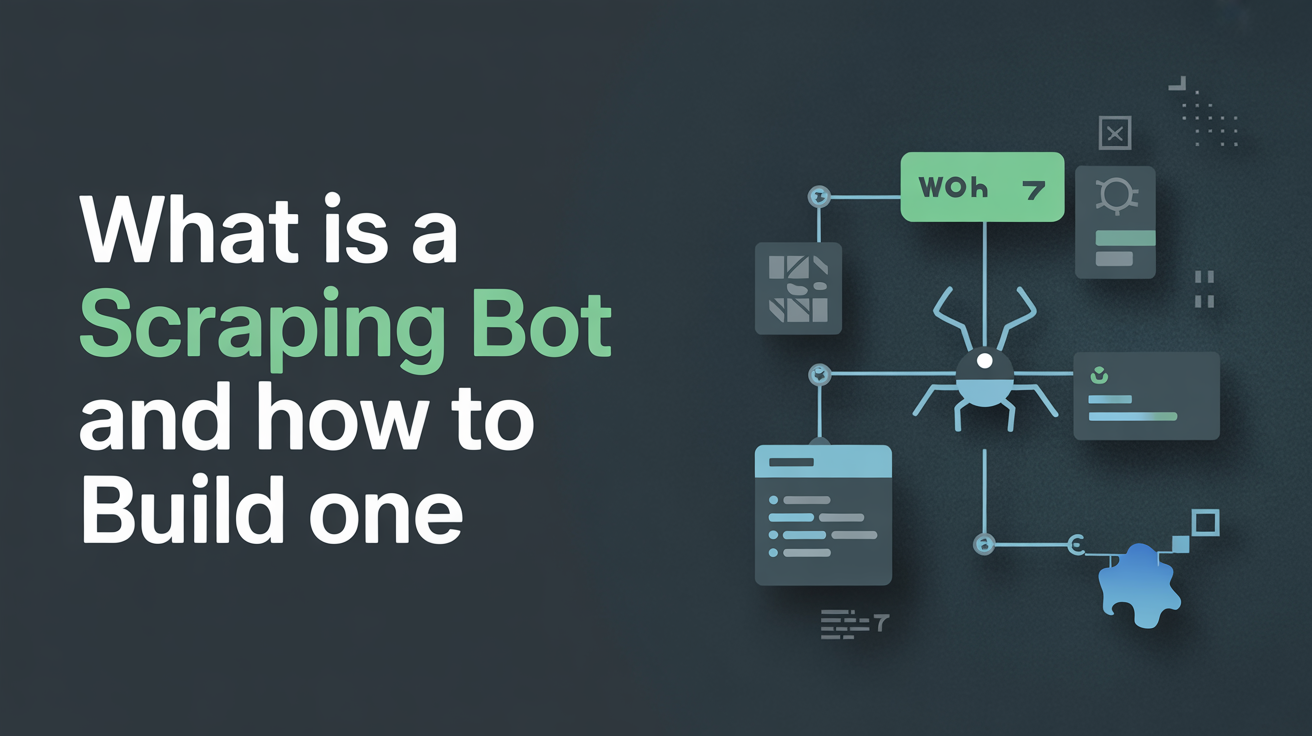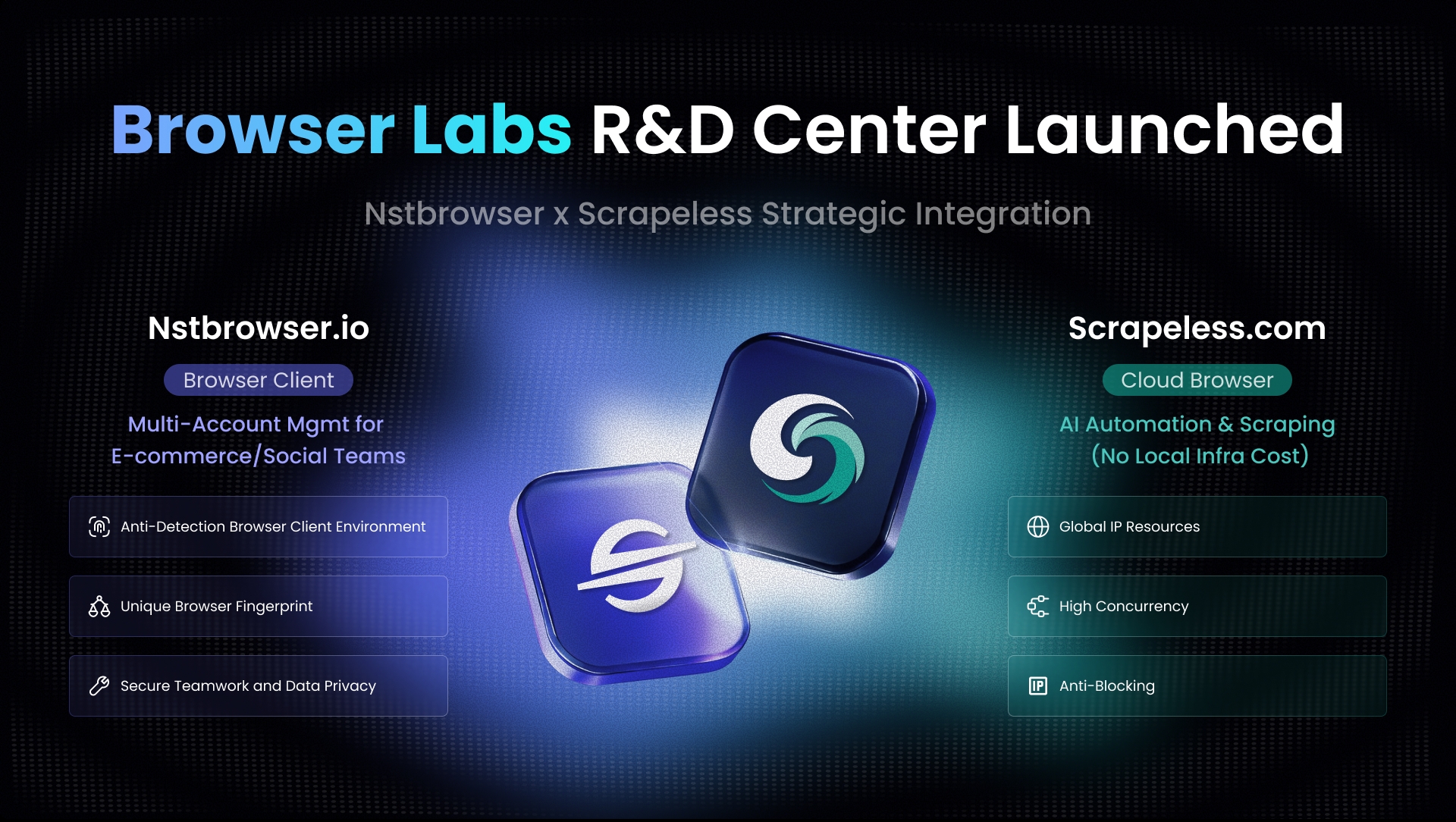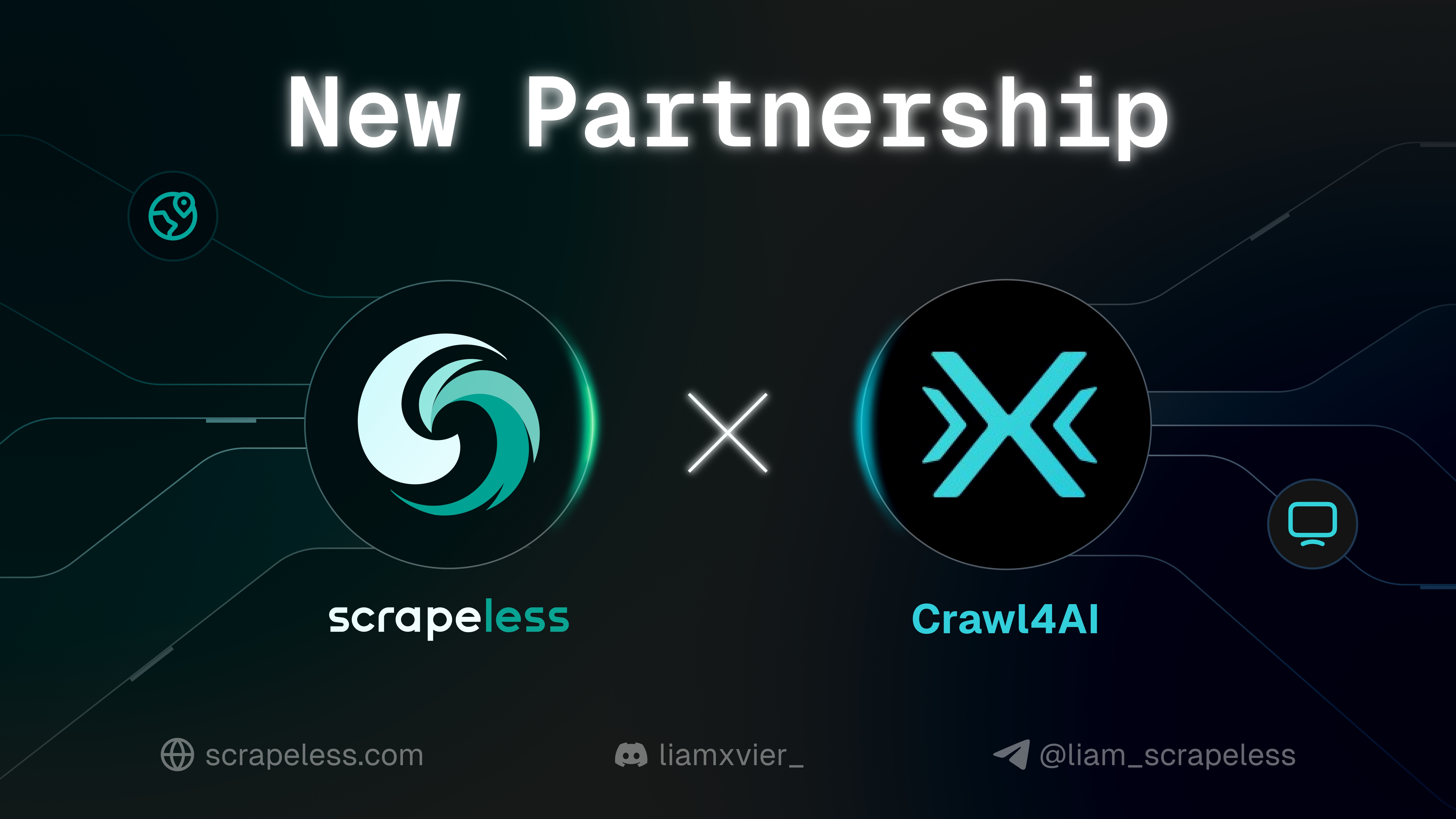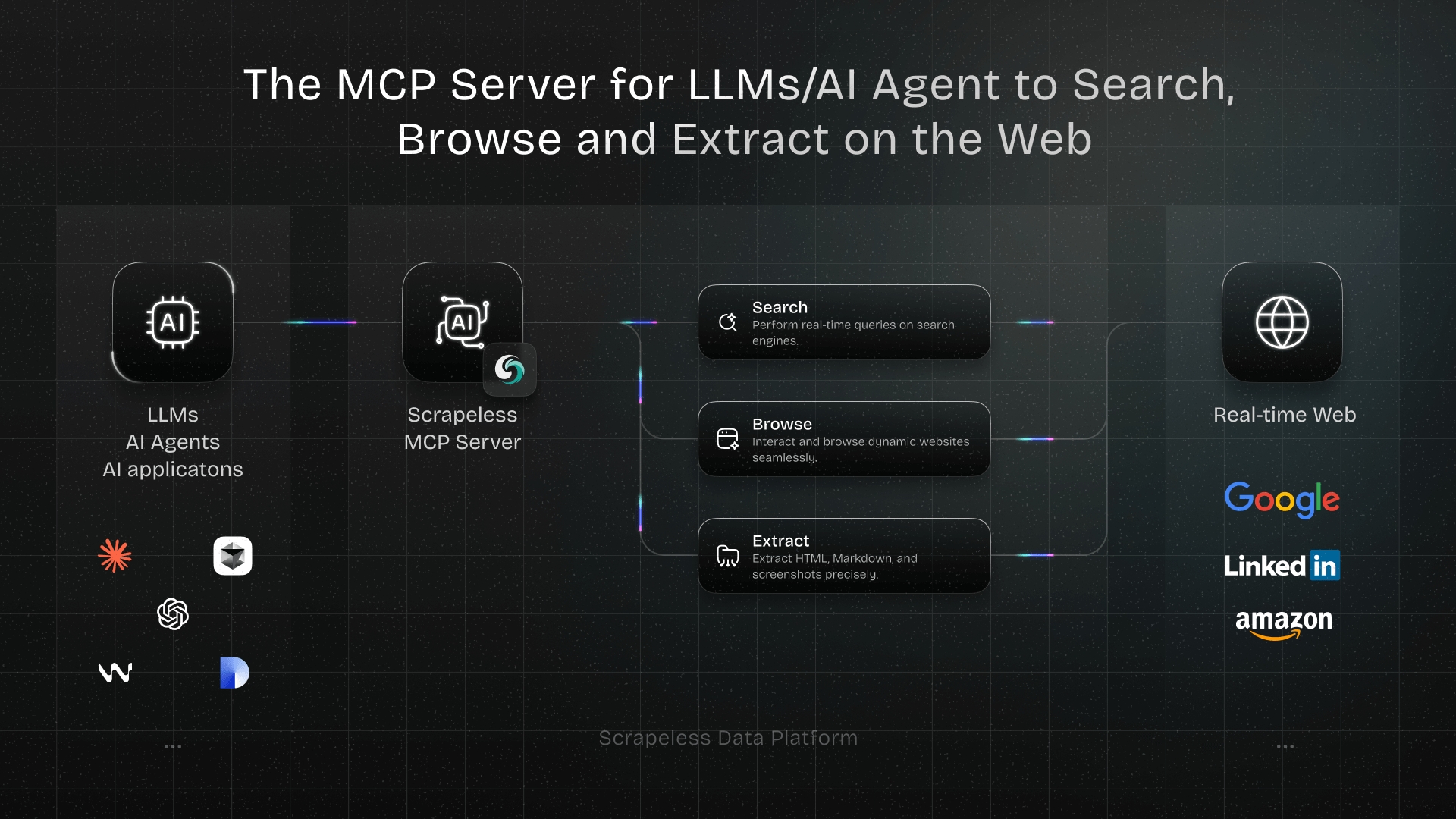What is a Scraping Bot and How To Build One
Expert Network Defense Engineer
Key Takeaways
- Scraping bots are automated tools that extract data from websites, enabling efficient data collection at scale.
- Building a scraping bot involves selecting the right tools, handling dynamic content, managing data storage, and ensuring compliance with legal and ethical standards.
- Scrapeless offers a user-friendly, scalable, and ethical alternative for web scraping, reducing the complexity of bot development.
Introduction
In the digital age, data is a valuable asset. Scraping bots automate the process of extracting information from websites, making data collection more efficient and scalable. However, building and maintaining these bots can be complex and time-consuming. For those seeking a streamlined solution, Scrapeless provides an alternative that simplifies the web scraping process.
What is a Scraping Bot?
A scraping bot is an automated program designed to navigate websites and extract specific data. Unlike manual browsing, these bots can operate at scale, visiting multiple pages, parsing their content, and collecting relevant data in seconds. They are commonly used for tasks such as:
- Collecting text, images, links, and other structured elements.
- Simulating human-like browsing to avoid detection.
- Gathering data for market research, price comparison, and competitive analysis.
How to Build a Scraping Bot
Building a scraping bot involves several key steps:
1. Define Your Objectives
Clearly outline what data you need to collect and from which websites. This will guide your choice of tools and the design of your bot.
2. Choose the Right Tools
-
Programming Languages: Python is widely used due to its simplicity and powerful libraries.
-
Libraries and Frameworks:
- BeautifulSoup: Ideal for parsing HTML and XML documents.
- Selenium: Useful for interacting with dynamic content rendered by JavaScript.
- Scrapy: A robust framework for large-scale web scraping projects.
3. Handle Dynamic Content
Many modern websites use JavaScript to load content dynamically. Tools like Selenium can simulate a real browser to interact with such content.
4. Implement Data Storage
Decide how to store the scraped data. Options include:
- CSV or Excel Files: Suitable for small datasets.
- Databases: MySQL, PostgreSQL, or MongoDB for larger datasets.
5. Manage Requests and Delays
To avoid overloading the target website and to mimic human browsing behavior, implement delays between requests and rotate user agents.
6. Ensure Compliance
Respect the website's robots.txt file and terms of service. Avoid scraping sensitive or copyrighted content without permission.
7. Monitor and Maintain the Bot
Websites frequently change their structure. Regularly update your bot to adapt to these changes and ensure continued functionality.
Example: Building a Simple Scraping Bot with Python
Here's a basic example using Python's BeautifulSoup and requests libraries:
python
import requests
from bs4 import BeautifulSoup
url = 'https://example.com'
response = requests.get(url)
soup = BeautifulSoup(response.text, 'html.parser')
for item in soup.find_all('h2'):
print(item.get_text())This script fetches the webpage content and extracts all text within <h2> tags.
Use Cases for Scraping Bots
Scraping bots are employed in various industries for tasks such as:
- E-commerce: Monitoring competitor prices and product listings.
- Finance: Collecting financial data for analysis.
- Research: Gathering data from academic publications and journals.
Challenges in Building Scraping Bots
Developing effective scraping bots comes with challenges:
- Anti-Scraping Measures: Websites implement techniques like CAPTCHA and IP blocking to prevent scraping.
- Legal and Ethical Concerns: Scraping can infringe on copyrights and violate terms of service.
- Data Quality: Ensuring the accuracy and relevance of the collected data.
Scrapeless: A Simplified Alternative
For those seeking an easier approach, Scrapeless offers a platform that automates the web scraping process. It provides:
- Pre-built Templates: For common scraping tasks.
- Data Export Options: Including CSV, Excel, and JSON formats.
- Compliance Features: Ensuring ethical and legal data collection.
By using Scrapeless, you can focus on analyzing the data rather than dealing with the complexities of building and maintaining a scraping bot.
Conclusion
Scraping bots are powerful tools for data collection, but building and maintaining them requires technical expertise and careful consideration of ethical and legal factors. For a more straightforward solution, Scrapeless provides an efficient and compliant alternative.
To get started with Scrapeless, visit Scrapeless Login.
FAQ
Q1: Is web scraping legal?
The legality of web scraping depends on the website's terms of service and the nature of the data being collected. It's essential to review and comply with these terms to avoid legal issues.
Q2: Can I scrape data from any website?
Not all websites permit scraping. Always check the site's robots.txt file and terms of service to determine if scraping is allowed.
Q3: How can I avoid getting blocked while scraping?
Implementing techniques like rotating user agents, using proxies, and introducing delays between requests can help mimic human behavior and reduce the risk of being blocked.
At Scrapeless, we only access publicly available data while strictly complying with applicable laws, regulations, and website privacy policies. The content in this blog is for demonstration purposes only and does not involve any illegal or infringing activities. We make no guarantees and disclaim all liability for the use of information from this blog or third-party links. Before engaging in any scraping activities, consult your legal advisor and review the target website's terms of service or obtain the necessary permissions.



